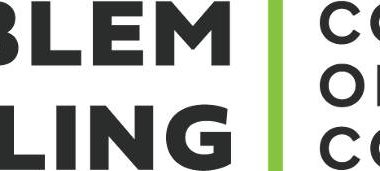Gets straight to the point

March has been designated as the month to raise awareness about problem gambling on a national level.
But Peggy Brown, the leader of the Colorado Problem Gambling Coalition, argues that this doesn’t significantly alter the situation. She actively participates in addressing the conflict throughout the year with her volunteer-based organization.
Moreover, Colorado’s steadily increasing player count is fueled by the legalization of sports betting. The state will soon celebrate its two-year anniversary since its establishment on May 1. However, the journey has been more of an uphill battle rather than a smooth ride, as the lack of financial and resource support, along with the absence of condition programs, have posed significant challenges.
According to Brown, a former gaming addict herself, the position was incredibly dangerous. She recently had a conversation with PayColorado over the phone where she expressed that the images of «Hellip,» «It,» and «& rdquo» were currently not very captivating.
There are more people calling the PGCC line.
The primary responsibility of the PGCC is to operate the Colorado & Rsqui problem gambling helpline, which can be reached at (800) 522 – 4700. This helpline has been in operation since 1995.
The line is accessible 24/7, every day of the week.
Qualified mental health and addiction therapists, as well as attorneys from the PGCC, are available to respond to these calls. Their role is to assist callers in accessing 12-step recovery programs or, when needed, intentional self-exclusion lists.
Treating issue gambling begins with this crucial initial step.
However, they represent only a small fraction of the ongoing conflict.
According to Brown’s estimation, the total number of calls received by the PGCC company in the year 2018 was 6,546.
In the year 2021, the state of Colorado witnessed its inaugural complete season of legalized sports betting, with a total of 9,686 participants.
According to Brown, there has been a mere 45 cent raise since 2020, which amounts to a 48% increase.
There is no denying that the initial weeks of 2022 brought a lot of enjoyment.
In January, Colorado achieved a remarkable feat by generating a betting handle of $574 million, setting new records. This impressive accomplishment was primarily driven by sports betting.
According to Brown, sports betting is undeniably one of the most addictive forms of gambling. Moreover, Colorado is ranked in the top six or seven states nationwide in terms of sports betting profits, which means that new participants continue to emerge constantly and the trend shows no signs of slowing down.
The gambling and issue is made worse by State & Rsquo’s great net usage.
The increasing prevalence of online sports betting and apps in Colorado is leading to a rise in problem gambling rates within the state.
These two concepts are simple scientific ideas.
Online wagers accounted for 98.6% of the state’s $3.85 billion sports betting handle in 2021, ranking sixth nationally.
In simpler terms, that particular state had the highest rate of sports gambling sites among all the states that offered both online and physical options.
In addition, a study conducted in 2019 by the National Center on Problem Gambling revealed that individuals using lightweight devices experience greater challenges in watching.
The combination of Colorado and its dangers is significant.
Brown insists that the PGCC’s stance on legalized gambling is unquestionably neutral.
Brown gave an explanation:
Online gambling has become increasingly addictive. It is now providing an easy and convenient option for a vulnerable population. Additionally, accessing funds through online payday loan services is effortless. In comparison to physical gambling venues, overspending is more common as you can easily make numerous transactions depending on your ATM usage frequency.
Brown sees a brighter future ahead.
Proposition DD, which legalized sports wagering in Colorado, was passed in November 2019. The allocation for treating problem gambling was consistently set at $130,000.
According to Brown, the amount of $30,000 is specifically allocated to the PGCC for the sole purpose of overseeing the service.
The remaining $100,000, after deducting administrative costs, is allocated to tackle the various gambling-related issues in the state.
Brown stated that they are just striving to do their best to stay afloat. They do not wish to constantly complain about their financial difficulties, but they acknowledge that money is a persistent issue that requires action from the state to resolve.
In order to achieve this, Brown asserted that the PGCC frequently engages in communication with various location agencies, such as the Colorado Division of Gaming.
PGCC is collaborating with various organizations and businesses such as local casinos, the Colorado Lottery, and nearby sportsbooks to tackle the state’s pressing concern of problem gambling.
The PGCC is receiving national assistance and guidance as well.
In March, Brianne Doura-Schawohl, the CEO of a reputable consulting firm, delivered a speech to the board of PGCC.
Keith Whyte, the executive director of the National Council on Problem Gambling, based in Washington, D.C., will also be doing this in the weeks to come.
All of these actions contribute to the dissemination of knowledge and fostering understanding about problem-solving.
However, Brown argues that without additional funding and resources dedicated to addressing the problem, there is limited potential for significant action to be taken.
She claims that there is a source of light at the end of the legendary tunnel.
According to Brown and , we are currently engaged in a collaboration with notable individuals to assist in the passage of legislation. We hold a strong belief that this endeavor will yield positive outcomes.
We, along with And and Andhellip, find ourselves perched on a mountain. It is crucial that everyone completes their tasks promptly within this legislative program. Time is of the essence.





